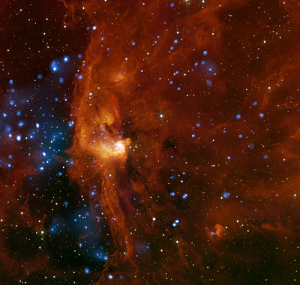Religious authority and new media culture

The internet holds great potential for communication and creativity within religious communities, but brings with it new challenges for religious authorities. This was the central theme of a guest lecture given by Dr. Heidi Campbell, at the Faculty of Theology and Religious Studies last week. Andrei Cazacu shares his reflections on the talk.
One of the most widespread ideas today is that the Internet allows for a more democratic approach to communities, that technology empowers users. In other words, that traditional authority is challenged by emerging forms of leadership and organization online (1).
Dr. Campbell, Associate Professor of Communication at Texas A&M, was here to discuss her latest research in a still nascent field: religion in digital environments. The study focuses on the producers of online content and the nature of their authority.
While mostly steering clear of any democratic implications that might be extrapolated from the findings, Dr. Campbell argues that the types of authority that have emerged in new media environments do not follow the patterns of traditional authority, and are instead ‘algorithmic’ in nature, being based on numerical repetition (the number of ‘hits’ one’s message or presence attracts), online visibility, the standing in social network hierarchies, and digital expertise.
So who are the people whose authority is being scrutinized? Dr Campbell discussed three distinct categories of what she calls ‘religious digital creatives’ (RDC) – leaders and innovators in online religious communities. The first, the ‘creole pioneers’, are individuals with certain technical expertise who bring their religious interests online and create a space for voicing certain views, often driven by frustration with institutional religion. The second, the ‘reformer critics,’ also tend to be disgruntled with institutions and use new media for their own form of theology – see Tony Jones’ Theoblogy. The final category is that of spokesperson-activists, the representatives of religious institutions and groups, such as the Pontifical Council for Social Communication.
Online authority is not necessarily accompanied by offline authority and vice-versa. However, Dr. Campbell acknowledges that there is considerable spillover between the two realms. Such is the case with spokespersons who operate online in order to advance the interests of their offline institutions, or with ‘theoblogians’ who gain enough followers that they are eventually exposed to a wider, offline audience. Thus, the line between online and offline authority becomes blurred.
Campbell also addressed other problems for users in the field of digital religion, including the memetic culture and the irreverent nature of the internet, to frustrations caused by outdated technology. The internet has immense possibilities for communication and creativity compared to old forms of media. However, it seems equally valid that users tend to ‘find their own tribe’ online rather than engage in intense dialogue between denominations and groups. This paradox might warrant future research.
Regardless, Dr. Campbell’s work, part of the third wave of research into religion in online environments, stands out as crucial research into one of the core concepts of any group and community: authority. The other merit is highlighting numerous other topics which need serious research if we are to understand more about religion in general, the internet, and other forms of community. One has to wonder, however, whether traditional modes and methods of academic research can truly keep pace with the rapid rate of technological advances, or whether it will lag too far behind.
Andrei Cazacu is following a Research Master course in Modern History and International Relations at the University of Groningen. He is also currently working as an Academy Assistant on a ‘Sustainable Citizenship’ project focused on religion and social media, part of the Religion, Community and Social Media research cluster in the Centre for Religion, Conflict and the Public Domain.
(1) Cheong, Pauline Hope, ‘Authority’ in Campbell (ed.) Digital religion: understanding religious practice in new media worlds (2013) New York: Routledge

